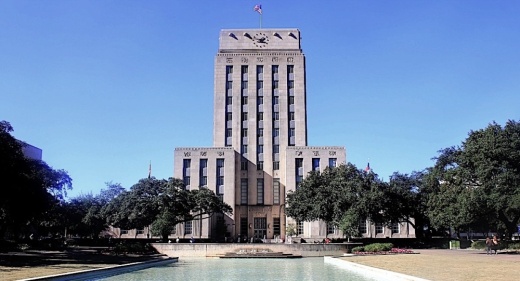During an April 12 Houston Regulatory and Neighborhood Affairs Committee meeting, City Council members proposed changes to Houston’s noise ordinance.
District C Council Member Abbie Kamin and At-Large Position 5 Council Member Sallie Alcorn said they have been working on revisions to the noise ordinance in an effort to mitigate problems they have heard from constituents while also finding a fair balance for the establishments the changes would affect.
“Nobody is going to be completely happy,” Alcorn said during the April 12 meeting. “And sometimes those are the best ordinances when no one is completely happy.”
Kathryn Bruning, assistant director with the city's Office of Administration and Regulatory Affairs, discussed the proposed changes during the meeting.
Under the current ordinance, there are three permits for loud noise that can be purchased: a daily permit that can be used from 8 a.m.-10 p.m., an extended daily permit that can be used for multiple authorized dates from 8 a.m.-10 p.m., and an annual permit that is valid throughout the year for Sundays through Thursdays from 8 a.m.-10 p.m. and Fridays and Saturdays from 8 a.m.-11 p.m.
During the valid hours for those three permits, the sound is allowed to measure up to 75 decibels. The limit is 68 decibels during all other times for nonresidential properties.
Under the proposed changes, a new commercial establishment permit would be introduced. According to Bruning’s presentation, a commercial establishment is “any business entity that offers for sale or allows its patrons the ability to consume food or beverages, or any combination thereof, on its premises.”
Under the new permit, establishments would still be allowed to play music at 75 decibels during the valid time periods but with a new after-hours rule. On Sundays through Thursdays from 10 p.m.-2 a.m., sound must not exceed 68 decibels if measured from the establishment’s property line and 58 decibels if measured from the property line of a residential home. On Fridays and Saturdays, the time period is 11 p.m.-2 a.m. From 2-8 a.m., amplified sound is not allowed.
This new permit would be required for a “commercial establishment within 300 feet of a residence if playing outdoor amplified sound or sound that can be appreciated outside,” according to the presentation. The fee for this new permit is still to be determined, Bruning said.
The proposed changes also include increasing the maximum fine for violators from $1,000 to $2,000 as well as revisions to the administrative hearing process, which relates to how an establishment's permit could be revoked.
According to First Assistant City Attorney Randy Zamora, the administrative hearing process will be complaint driven. He said city staff will not know there is a problem until it is brought to their attention. However, the complaints will not be the sole reason for a permit revocation, he said.
In an email to Community Impact Newspaper, Alcorn said under the current noise ordinance, an establishment can have a permit revoked or suspended if they receive two or more convictions or enter two or more guilty pleas in a 36-month span. She said with the newly proposed amendments, the hearing process will allow the business to present a sound mitigation plan 10 days before an administrative hearing. If the plan is approved by a hearing officer, the establishment will be allowed 90 days to get the work done needed to implement the plan.
“This has not been an easy task,” Alcorn said at the meeting. “That is no understatement. We want to protect the right of every Houstonian to enjoy the peace and comfort of their own home. We also want a robust Houston nightlife.”
During the public comment section of the meeting, residents from different parts of Houston voiced grievances about the noise they hear from the bars.
One of the speakers was Mark Fairchild, president of the Rice Military Civic Club. Fairchild said residents in his area leave town on weekends, sleep with a mattress against their door, change the windows in their home and even switch their work shifts to avoid the noise.
“These changes give hope to residents who had to alter lives and work schedules because staying home while bars are operating are no longer an option,” Fairchild said.
The proposed changes must first go through Houston City Council to be voted on and approved. If approved the council, they would go into effect 120 days afterward. During those 120 days, city staff would meet with establishments to educate them on the changes.





